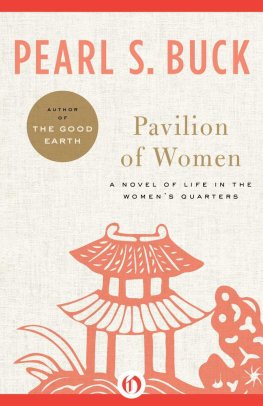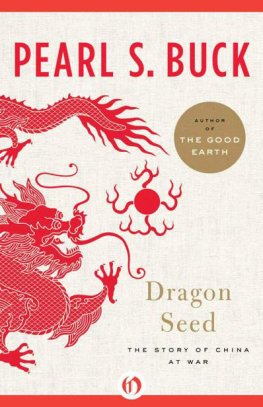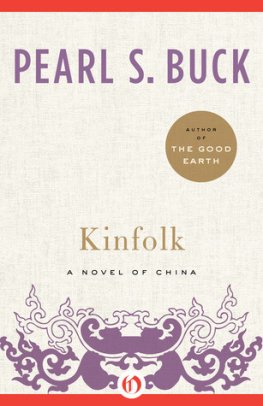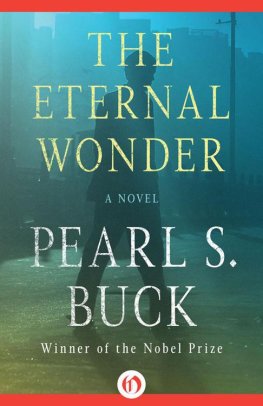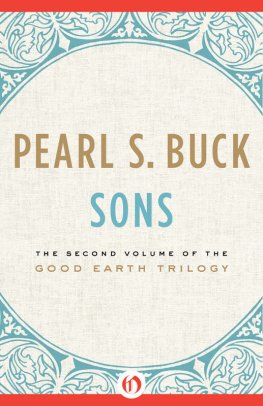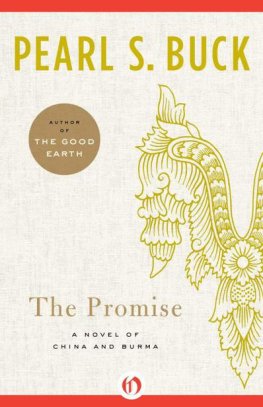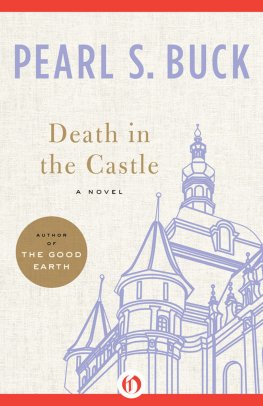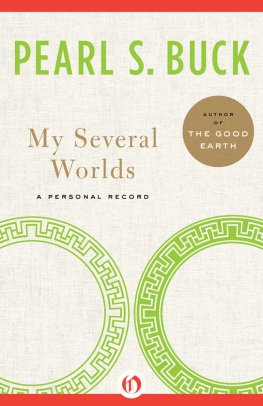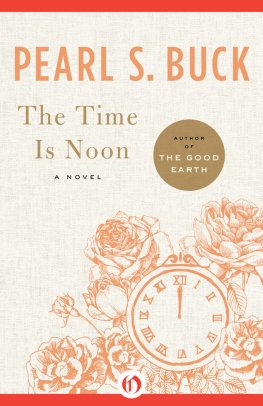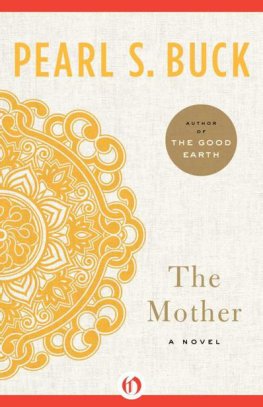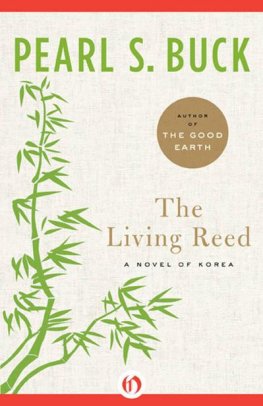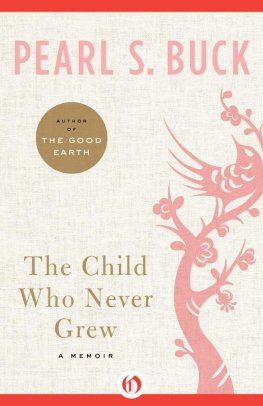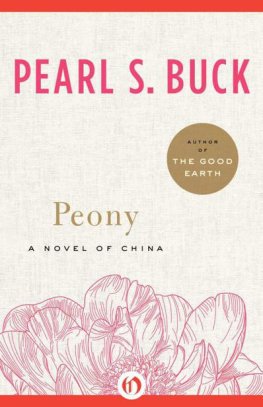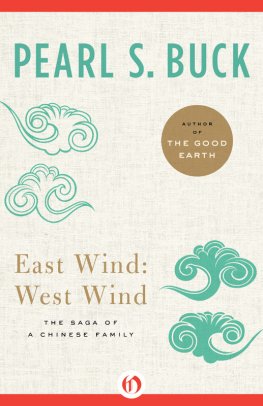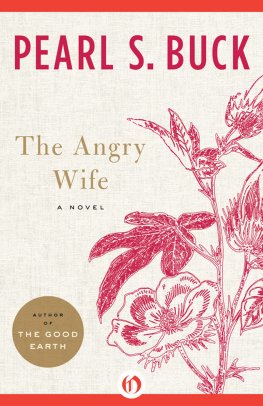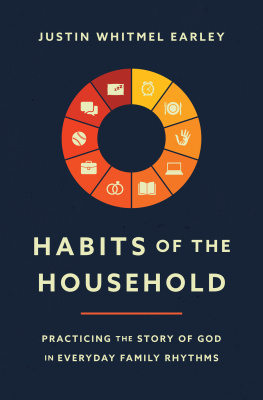Pearl S. Buck
Pavilion of Women
IT WAS HER FORTIETH birthday. Madame Wu sat before the tilted mirror of her toilet case and looked at her own calm face. In her mind she was comparing it with the face she had seen in this same mirror when she was sixteen. On that day she had risen from her marriage bed early, for she had always been an early riser, and putting on her new chamber robe she had come into this same room and had taken her place before the toilet table. She had sat in her quiet fashion, easily motionless, and had gazed at her young face.
Can it be that I look the same today as yesterday? she had asked herself on that first morning after her marriage.
She had examined her face minutely, broad low forehead, yesterday stripped of its girlhood fringe, long eyes, delicate nose, the oval of cheeks and chin and the small red mouth, that morning very red. Then Ying, her new maid, had hurried in.
Oh, Miss Oh, Madame, she had faltered. I thought today you would not be so early! Yings cheeks had been bright with blushes.
Madames own cheeks were as pearly pale as usual, above the red mouth. I like to get up early, she had replied in her usual gentle voice, the voice which in the night the young man whom she had never seen before had told her was like the voice of a singing bird.
At this moment, twenty-four years later, as though she knew what her mistress was remembering, Ying spoke from behind the heavy redwood chair. Her hands were busy with the coils of Madame Wus shining, straight black hair, but she had now made these coils for so many years that she could lift her eyes from the task and look at the beautiful face in the mirror.
Lady, you have changed not at all in these twenty-four years, Ying said.
Are you thinking of that morning, too? Madame Wu replied. She met Yings eyes in the mirror with affection. Ying had grown stout in twenty years of being married to the head cook, but Madame Wu was as slender as ever.
Ying laughed loudly. I was more shy than you that morning, Lady, she said. Ai ya, how shy I was then with how little cause, eh, Lady? Its only natural, what goes on between men and women, but then it seemed some sort of magic!
Madame Wu smiled without reply. She allowed Ying complete freedom in all she said, but when she did not wish to carry on the conversation she made her smile fleeting and kept silence after it. Ying fell silent, too. She pretended dissatisfaction with a coil of the smooth black hair under her fingers, and pursing her lips, she let one strand down and put it up again. When it was finished she put two jade pins into the coil, one on either side, and wetting her hands with an oiled perfume, she smoothed Madame Wus already sleek head.
My jade earrings, Madame Wu said in her clear pretty voice. It was a voice so feminine that it concealed everything.
I knew you would want to wear them today! Ying exclaimed. I have them ready.
She opened a small box covered with flowered silk and took out the earrings and fastened them carefully through Madame Wus little ears. Twenty-four years ago young Mr. Wu had come into this room at the exact moment when she had dressed her mistress freshly in a soft wide-sleeved red satin coat over a pleated black satin skirt whose panels were embroidered, front and back, with birds and flowers. In his hand Mr. Wu had held this box. His handsome eyes were full of sleepy content. He had handed the box to Ying, being too well-mannered to speak to his bride before a servant. Put these in your mistresss ears, he had said.
Ying had cried out over the flawless clarity of the jade and had held them before the brides eyes. Those eyes had lifted to her husband for one moment before she dropped the lids with graceful shyness. Thank you, she had murmured.
He had nodded, and then while the maid fastened them into her ears he had stood watching. Madame Wu had seen his face in this very mirror, the handsome full face of a willful and proud young man.
Ai, he had said, in a sigh of pleasure. Their eyes met in the mirror and each took measure of the others beauty. Go and fetch me hot tea, he had said abruptly to Ying, and at the sound of his voice the maid had been startled and scuttled away.
They were alone again, as they had been in the night. He had leaned over her and put his hands on her shoulders. He stared into her face in the mirror.
If you had been ugly, he said, I would have killed you last night on the pillow. I hate ugly women.
She had smiled at this, without moving under his hands. But why have killed me? she had asked in her pretty voice. To have sent me home would have been enough.
She had been deeply excited that morning. Would he be intelligent as well as handsome, this husband of hers? That would be perhaps too much to ask. But if he were?
At this moment twenty-four years later, Ying now said, Jade is as beautiful as ever against your skin. What other woman of forty can say this? It is no wonder that the master has never wanted another wife.
Do not speak quite so loudly, Madame Wu said. He is still asleep.
He should wake early on your fortieth birthday, Madame, Ying replied. She rubbed her nose with the back of her hand. After all these years she felt she knew Mr. Wu, and of one thing she was certain: in spite of his fondness, he still did not appreciate enough his beautiful wife whom the whole house loved. Yes, of the sixty-odd souls under this roof, who did not love Madame Wu, from Old Lady down to the smallest grandchild and lowliest servant? If in the servants quarters a new maid dared to grumble because the mistress saw the dust swept behind a door, Ying jerked her ears.
This is the house of the Wu family, she said in her loud voice. This is not a common house like Wang or Hua.
The head cook always grinned at this. All his life as a husband he had known that against the mistress, he was nothing in Yings eyes. But indeed in this house even the two sons wives had no evil to speak. Those narrow hands which Madame Wu held so often lightly clasped on her lap, were firm and kind while they ruled.
I will have my breakfast, Madame Wu now said to Ying. After I have eaten I will speak with my eldest son. You will dress me for the feast at noon. But keep watch over your master, and when he wakes let me know.
That I will do, of course, Lady, Ying replied. She stooped to pick up a comb she had let fall. It was made of the fragrant sandalwood which was the scent Madame Wu used for her hair. Ying plucked a few long hairs from the comb and curled them carefully around her finger and put them in a small blue porcelain jar. She was saving these hairs against the day of her mistresss great old age, when it was possible she might need to thicken even her coil with a switch.
Madame Wu rose from the chair. She was ready for this day. A womans fortieth birthday in a rich and old-fashioned family was a day of dignity. She remembered very well when her husbands mother had passed such a day, twenty-two years ago. On that day Old Lady had formally given over to her sons wife the management of the big house with its many members. For twenty-two years Madame Wu had held this management in her own hands, skillfully maintaining its outward habits so that Old Lady did not notice changes, and at the same time making many changes. Thus before Madame Wu had decided to do away with the overgrown peony bushes in the eastern garden, just outside these rooms, she had allowed the peonies to die one winter. When their strong red shoots did not push up as usual in the spring she called Old Ladys attention to this and helped her to decide that the peonies must have exhausted the soil and air in this garden, and therefore something else had better be planted here for a generation or two.
Narcissus? Madame Wu, then eighteen, had suggested gently. Orchids? Flowering shrubs? I am only anxious to please you, Mother. But she had put orchids in the middle of the sentence. They were her preference. By putting them in the middle, Old Lady would think she did not care for them.

